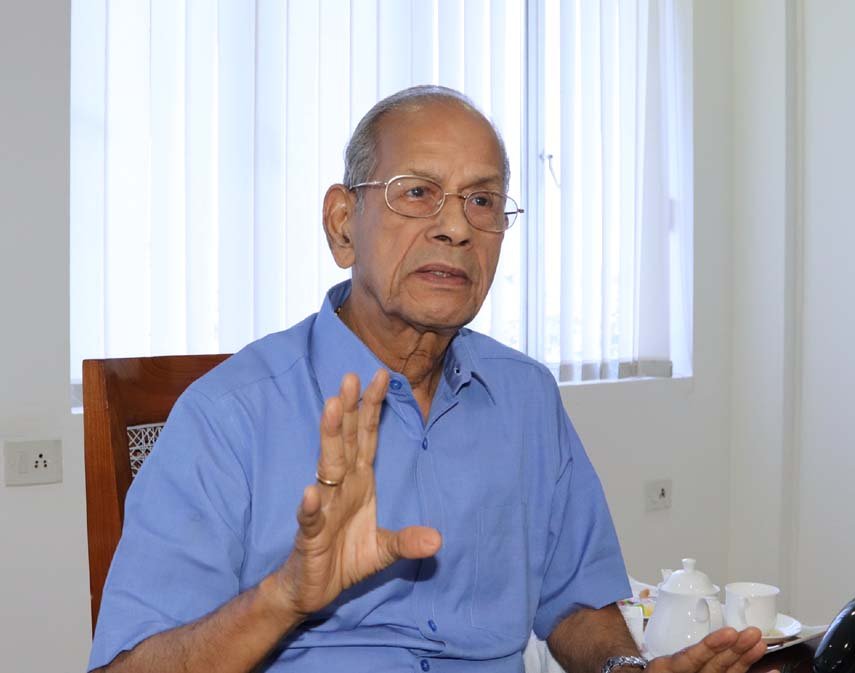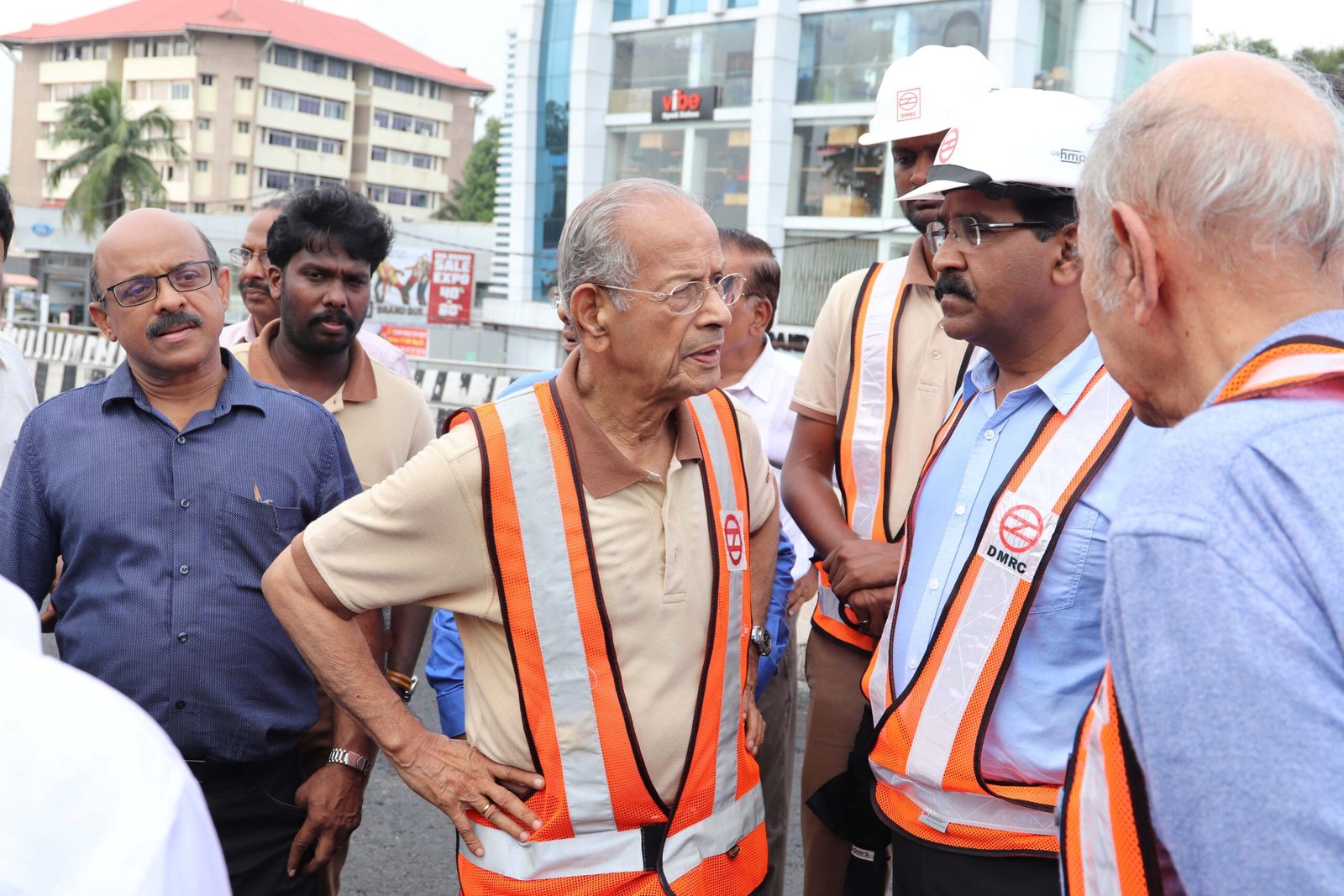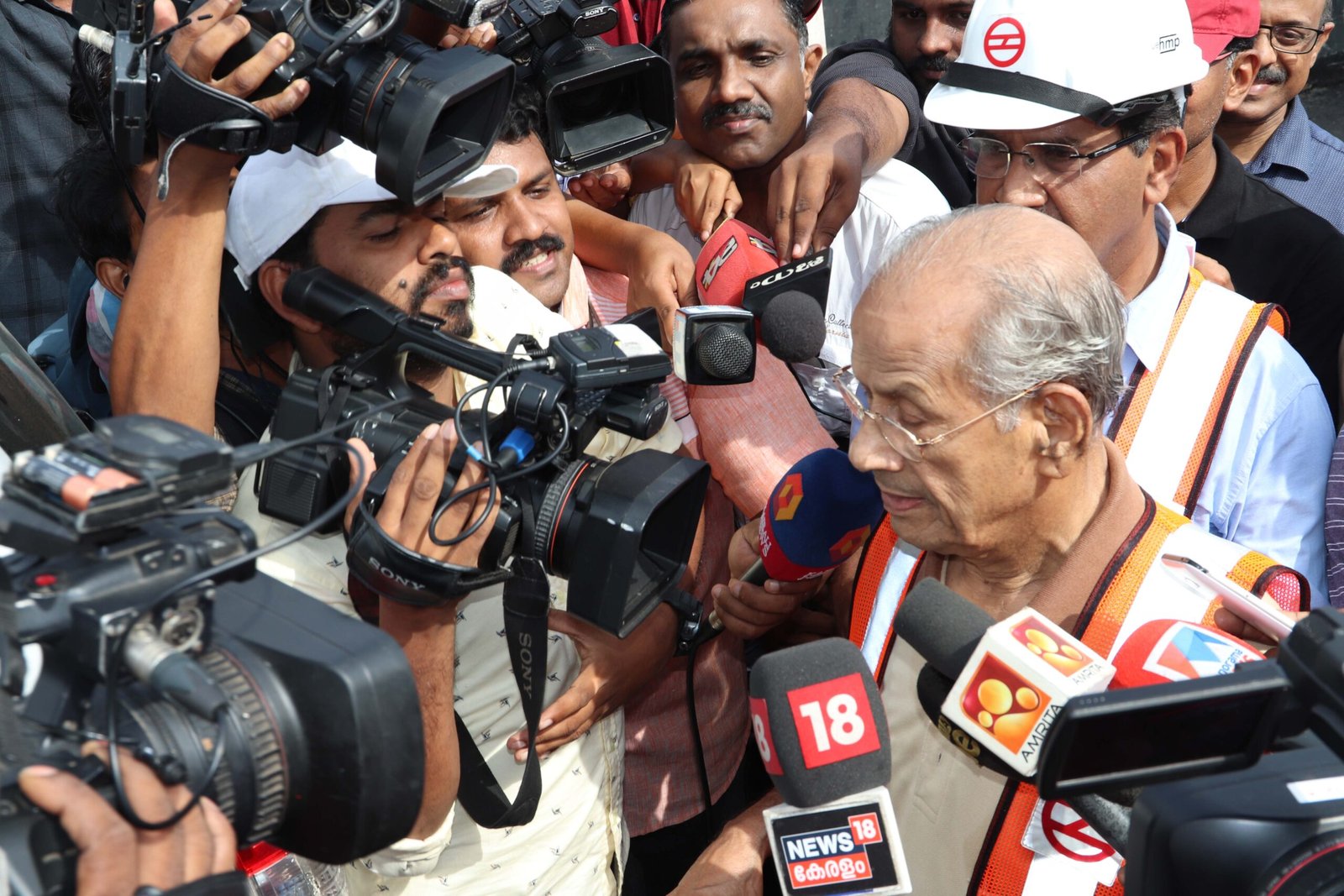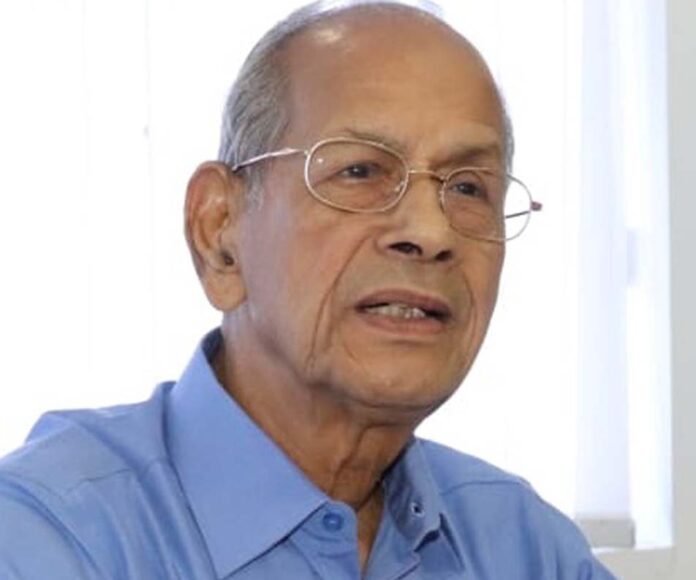Q. You have never said ‘No’ to a project. When a project proposal comes with all its complexities, you see its positive side. You go deep into its implementation aspects. You always say ‘I can’. How can you be so optimistic?
I won’t say I am very optimistic, but infrastructure projects are important for our country. Most of them are good for the country and, above all, good for society. Such projects must be taken up and carried forward. My background is basically railway, bridges and tunnels. These are my forte. I haven’t spent much time on buildings. All these projects are crucial for our country’s development and to improve the standard of living of the citizens. So, I have always said YES to those projects.
I had got many opportunities to work for our country’s development. I have been in this industry for the past 36 years. In the Railways, I had done a lot of work that many are not aware of. Of course, Delhi Metro and so many other metros stand out. I have taken up these projects as a means to serve my country. That is why I have never said ‘No’ whenever an opportunity came my way to serve the country.

Q. To walk the straight path is not that easy, especially when you handle projects in a country like India where corruption is the order of the day. How have you done so much amidst all this?
Actually, walking the straight path is the easiest way to do things. For this, two things are necessary. First, be sure about your subject and have confidence in your knowledge. The other things is integrity and straightforwardness. These two qualities will always fuel us to walk the straight path. They will provide you sufficient ammunition to shoot back at any source of unfounded criticism and accusations of malpractice.
When you are straightforward in your work, people will begin to respect you. Even politicians will respect you. Initially, I had a lot of problems with the politicians. But when they found that everything is being done for the betterment of our country and that it can be used for political mileage, everything started falling in place. Once they see this point, they stand by us and are happy.
Delhi Metro is a classic example. We had to encounter a lot of problems, particularly when nobody wanted their houses demolished and everybody wanted a Metro station near their home. Sheila Dikshit was the then Chief Minister of Delhi. There were a few things she disliked about my working style. So I had to explain to her about the efficiency of this method and that only this method could make the work move fast.
“You see, if it is done fast, the credit goes to you, the State government,” I told her. She understood that. The end result? She went on to become the Chief Minister of Delhi for three successive terms. So, walking the straight path is not all that difficult. In fact, it is the easiest thing to do. You don’t have to answer to anyone. But, you must have the capacity to do things, the knowledge. That is very important.
Q The success of a construction project depends on many factors, including political intervention and socio-economic challenges. How can we navigate through all that? How can we streamline the country’s infrastructure sector and create a corruption-free environment?
We cannot isolate the construction industry alone from corruption. For that the whole country has to be corruption-free, which is not happening. If you have the construction industry to yourself, you can make it corruption-free. I have been able to do that. I have never allowed corruption to take place in my projects and I have never been involved in any corruption. Let the contractors learn that this is not impossible.
The main question is: why do contractors deviate from the straightforward path? It’s because the decisions are not taken on time. Contractors don’t get payments on time. Don’t give them reasons to deviate from the norm. See that the payments are made on time. When the contractor doesn’t get the release of cranes on time, see that it is settled fast. If these things are done, the contractor won’t have the need to influence anyone. He doesn’t have to go to the politicians to speak to me. Things are readily available in a straightforward manner. We have to create that environment.
The DMRC and Konkan Railways were some of my major projects. We introduced a payment system, a decision-making system and a special grievance redress system that made every contractor happy. I can boldly say that if DMRC takes up a a work, every contactor would be prepared to come and work at least at 10% cheaper rate, because they know that it won’t be a problem. Work is done on time and cost provisions to influence people are not required. If the DMRC and Konkan can do it, any organisation can do it. The only thing is to maintain such a work environment.

Q. Modern construction practices create an imbalance in the environment, especially the carbon footprint and other damage caused by burying and dumping cement, steel and other materials. Do you think we need an alternative? Any suggestion to bring down the waste due to construction?
Construction works have to meet a lot of requirements, which include strength, safety and ease of construction. All the projects that I have undertaken require at least 100 years of life. To meet these requirements, we have to use the materials that do not compromise in durability. I don’t think concrete or reinforced concrete would cause any environmental hazard as long as these are aesthetically designed and constructed, and the waste is not thrown into water courses or left out into the atmosphere.
Construction using steel is very expensive in India. But, in foreign countries, the situation is different. Countries like the United States prefer steel for construction because it is easily available and cheap. Concrete is very expensive and labour-intensive, making it an expensive commodity in the US. So, they prefer steel for making even a multi-storeyed structure whereas we prefer concrete. Ultimately the selection of construction materials depends on availability and economy.
Q. How do you look at land management and water management in India?
These two topics take a different dimension in our country, mainly because of the pressure of population. Just think of the consequent pressure on water, land and electricity! The government is trying a lot of options for land and water management. But their success is limited because of population growth. Due to many political reasons, population growth is not controlled. Countries like China have achieved this with the ‘One child policy’. Proper management of these resources can be done only by controlling the number of users.
Q. How do you see the land distribution system in India?
Except for few forest reserves, most of the land is in the hand of private individuals or companies. So, private land owners try to protect their interests and the government finds it difficult to utilise them for public purposes. With the introduction of the Land Acquisition Act, the scenario has become so complex that the government can acquire land only by accepting the terms of private owners.
Many contractors start their work in an area, but the work gets held up. They don’t get the compensation or it gets delayed mainly because most of the rules are one-sided. The owners reap the advantage out of it and not the contractors. This eventually leads to ‘corruption’. But there are ways to mitigate them – by being fair, reasonable and just.
In certain cases, I had to make decisions which were against the government rule and they were questioned. In such cases one should be able to handle them. Many even said that there would be Vigilance investigation against me. What I have felt is that, once they realise that my intention is for the development of our country, they tend to take a softer stand on the issue. You can always justify such actions.
Q. We really need big projects for the country. But every project causes an imbalance. Is there a way to reduce the imbalance between the rich and the poor? Or that of some people benefitting from a project while some are completely neglected. How do we control the socio-economic imbalance that they create in society at large?
Your decisions should benefit the larger interest group for the development of India. A project might harm some people. Let’s take an example of a flyover. There will be a few who will be affected by the project. But see the larger interest of the country. A few will have to sacrifice for the benefit of the nation.
Q. Your advice for the next generation engineers?
Learn the subject thoroughly. Knowledge is strength. Knowledge about the subject will attract respect and will always be your greatest strength. And then develop good qualities. Knowledge of engineering is meaningless if you don’t have values or ethics. You can never become a brilliant engineer if you don’t have love for your country and concern for the contractors.
Q. Our magazine focuses on skill development of engineers. Your views…
Developing the skill is very crucial. There are only a few skilled people in all sectors. At the Bombay Port Trust, I had worked with a contractor. In one of those sites, there was a carpenter. The skill he possessed was amazing. There was no need to give any detailed drawings. He was able to do it on his own. Skill is a very important quality which one can develop. That type of people we need in our country. We don’t have skilled workers to tie bars at the site. With Kochi Metro, we had to face a lot of problems because of non-availability of skilled workers.
L&T, in fact mentioned a skill development programme, an apprenticeship for the workers. But when they approached Kerala, the government was reluctant to include L&T. They have this programme in many other States except Kerala. You have started a great venture. I wish you all the best. There is a lot to be done to improve the status, stature and reliability of engineers.
I feel very sorry when I think about the construction industry. And then, construction management requires a lot to improve. We have a lot of planning and manpower, but people here forget that ‘Time Is Money’. If we delay a project even by 3 months, it costs money. This is very important. If you can bring that sort of awareness among the engineers, it will be great. Equally important are ethics and values.






